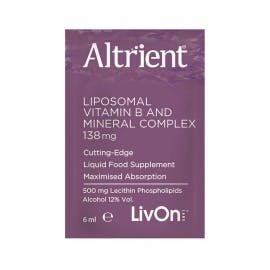Simple Ways To Deal With Stress
Stress is a very personal thing. What one person finds stressful, another finds challenging or even invigorating. The trick is to find coping mechanisms that allow you to manage stress so that it doesn’t overwhelm your life or impact on your health and relationships.
Understanding stress
Stress is a reaction to our thoughts and emotions and to the environment around us. It is a normal biological function involving the nervous system and adrenal hormones, designed to protect us from demanding or dangerous or life-threatening circumstances.
The response to stress is universally known as the General Adaptation Syndrome (GAS), which contains three stages - alarm, adaptation and exhaustion.
- Alarm stage - commonly known as the fight or flight response, this is the body’s initial reaction to a threat. The adrenal glands are galvanised into action, producing cortisol, adrenaline and DHEA. Together these hormones raise blood sugar whilst also maintaining energy and resistance to stress. As a result, more oxygen and sugar are made available to the muscles and brain.
- Adaptation stage - if the stressor hasn’t been deactivated or cannot be overcome then it becomes necessary to adapt to the strains or demands of the environment. Cortisol levels start to rise beyond what’s considered to be normal and DHEA levels begin to fall. However, the body cannot keep this up indefinitely.
- Exhaustion - during this third and final stage, the constant stress stimulation starts to take its toll on the adrenal glands. The major causes of exhaustion are loss of potassium ions and depletion of cortisol and DHEA. This can cause blood pressure and blood sugar levels to fall, resulting in fatigue, weakness and slower thinking.
Sources and symptoms of stress
Stressors are not just emotional in nature such as bereavement or job loss. Stress could also be physical in nature as a result of childbirth, injury or surgery, or chemical due to drugs or alcohol. Even nutritional factors such as poor diet and food allergies may act as stressors.
Symptoms of chronic stress are varied and may be expressed as physical, behavioural, emotional or cognitive imbalance and could include insomnia, depression, fatigue, headaches, upset stomach, digestive disturbances and irritability.
How stress impacts on your health
Control mechanisms in the body are geared towards counteracting the everyday stresses of life. However, if stress is prolonged, these control mechanisms could become overwhelming and even harmful. Chronic stress is thought to be a contributory factor in numerous diseases and emotional problems including depression, comfort eating, anxiety, cancer and heart disease.
Long-term stress may potentially contribute to:
- Suppressing the immune system
- Slowing down the digestive system
- Impaired fertility
- Depleted nutrient status
- Hindered repair rate
- Negatively affect the function of major organs such as the thyroid, pancreas, liver, kidney and brain
Does a poor diet contribute to make stress?
Eating a diet high in simple sugars and processed foods as well as stimulants like alcohol and caffeine could contribute to heighten stress in the body. The body is constantly overseeing blood sugar levels and uses several hormones to do this – insulin to bring it down and the stress hormones adrenalin and cortisol to raise it up again. High-sugar diets tend to raise blood sugar sharply and could increase blood sugar volatility, which over long periods of time may start to tire out the adrenal glands and influence the body’s ability to respond to stress efficiently.
Six top stress busting tips
Get a good night’s sleep - human health is influenced by quality and quantity of sleep. Experts suggest we need at least 7-8 hours a night. Reading or using electronic equipment in bed is not recommended as it could stimulate the mind and may prevent restful sleep.
Nourishing foods - good nutrition plays a crucial role in supporting the body during times of stress. Eating plenty of nutrient rich foods such as fruits and vegetables, complex carbohydrates and lean proteins is a good place to start. Research shows that the micronutrients found in fresh fruit and vegetables are associated with improved state of mind.
Boost your B vitamins - when it comes to managing stress B vitamins take pole position. Vitamins B1, B2, B6, B12 and niacin (B3) all contribute to the normal functioning of the nervous system and these same vitamins together with folate also contribute to normal psychological function.
Exercise daily - health and productivity are influenced by the body’s ability to deliver nutrients and oxygen to cells. Regular physical activity helps contribute to normal circulation and plays a key role in stress management by releasing feel good hormones that help relieve tension and anger. Exercise also helps serve as a valuable distraction from your daily worries.
Manage your life - being more organised allows you to take better control of the way you spend your time and energy so you can cope better with stress. Use a diary and plan the week ahead, making sure you fit in time for friends, family, exercise and treats too.
Take up yoga or meditation - stress contributes to high blood pressure. Research has shown that not only does yoga help to manage blood pressure, but it has the added effect of managing blood sugar levels, cholesterol levels, and body weight.
Diet and lifestyle habits – sugar, smoking, alcohol and drugs just add to the body’s stress burden so steer clear of these if possible and think twice when times are tough. Sugary processed foods may give a temporary boost of energy, but these could just promote an ongoing cycle of stress. Try snacking on nuts and fruit instead. Remember balancing your blood sugar is key for stress management.
Carb check - highly processed refined foods should be replaced with complex carbohydrates found in wholegrain foods and teamed up with good quality proteins at each meal. Protein is a good source of important amino acids, many of which are needed to produce adrenal hormones and maintain a calm and relaxed state of mind. Protein also helps to slow down the release of sugar from other foods. In addition to protein, complex carbohydrates are equally valuable in terms of blood sugar balance as they take longer to break down, releasing sugar into the circulation gradually.
Supporting the adrenal glands is of paramount importance to ensure a balanced response to stress. Green leafy vegetables, fish, offal and wholegrains are particularly good sources of B vitamins and essential fatty acids that contribute to adrenal function.
While you’re trying to rein in bad habits and clean up your diet it can help to add an extra layer of stress support by topping up your B vitamin intake. Liposomal Altrient B provides a full spectrum of exceptionally well-absorbed B vitamins plus additional minerals to help support overall health.
Jacqueline Newson BSc (Hons) Nutritional Therapy
REFERENCES
- Brookie KL, Best GI, Conner TS. Intake of Raw Fruits and Vegetables Is Associated With Better Mental Health Than Intake of Processed Fruits and Vegetables. Front Psychol. 2018; 9:487.
- Faith R E, Khansari D N and Murgo A J. Effects of stress on the immune system. Immunology Today 1990: 11: 170-175.
- McEwen B S. State of the Art. Protective and damaging effects of stress mediators: central role of the brain. Laboratory of Neuroendocrinology. The Rockefeller University, New York, NY, USA
- Mc Ewen B S .Protective and Damaging Effects of Stress Mediators. N Engl J Med 1998: 338; 171-179.
- Mckewen B S. Central effects of stress hormones in health and disease: Understanding the protective and damaging effects of stress and stress mediators. European Journal of Pharmacology; 2008: 2-3, 174-185.
- Okonta NR. Does yoga therapy reduce blood pressure in patients with hypertension? An integrative review. Holist Nurs Pract 2012; 31:28.




